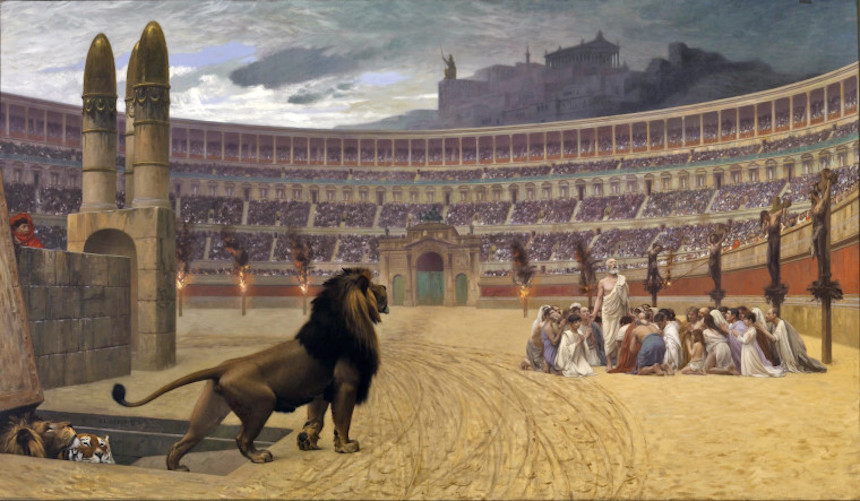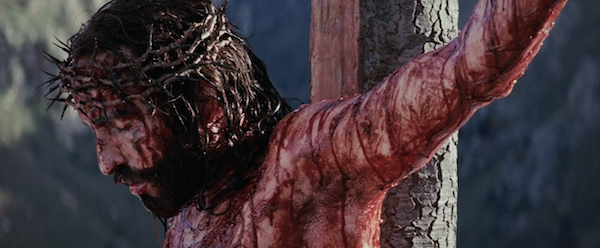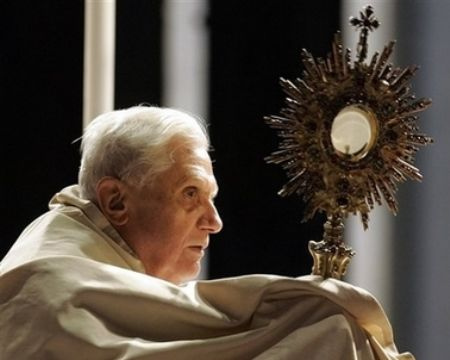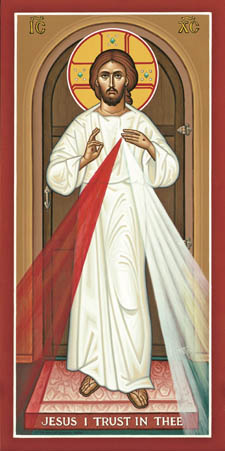Blood & Ink: The Video
 My friend David uploaded the audio of one my talks last year onto YouTube, “Blood & Ink: How the Early Church conquered the World”:
My friend David uploaded the audio of one my talks last year onto YouTube, “Blood & Ink: How the Early Church conquered the World”:
"We are travellers…not yet in our native land" – St. Augustine
 My friend David uploaded the audio of one my talks last year onto YouTube, “Blood & Ink: How the Early Church conquered the World”:
My friend David uploaded the audio of one my talks last year onto YouTube, “Blood & Ink: How the Early Church conquered the World”:


A couple of weeks ago I gave a talk at Santa Sophia entitled “Blood & Ink: How the Early Church Conquered the World”. Unfortunately, soon after given the talk, my laptop decided to die, so I couldn’t upload the audio. My laptop is finally fixed, so here you go…
Blood & Ink: How the Early Church Conquered the World (Download)

I’m going to take a break from my “Quick Apology” series concerning Mary and Saintly Intercession. Today’s “Quick Apology” will be a very brief and concern the Eucharistic liturgy…
The Catholic Church teaches that, in the Eucharist, the sacrifice of Calvary is made present again. In response to this, some Protestants object in this way:
“How can you say the sacrifice of calvary is made present again? The Epistle to the Hebrews says that His sacrifice was once for all. He’s no longer bleeding…”
Obviously, there is a lot that could be said in response to this, but how might we respond briefly?
In reply to this objection, sometimes I challenge Evangelicals over the very language they use in talking about salvation. Don’t they often talk about “being washed in the blood”, upon accepting Christ as their personal Lord and saviour? However, given the objection they raised above, isn’t there a problem? Hasn’t Jesus stopped bleeding? Wasn’t His sacrifice 2,000 years ago?
When Evangelicals talk about “being washed in the blood”, they’re talking about the the grace of the cross being applied to their souls in time in a real, substantial way. Given this, is the idea of the Eucharist being a participation in Calvary really that alien?

Since yesterday began the Week of Prayer for Christian Unity…
“Yes, for me ecumenism is a priority. Today there is an ecumenism of blood. In some countries they kill Christians for wearing a cross or having a Bible and before they kill them they do not ask them whether they are Anglican, Lutheran, Catholic or Orthodox. Their blood is mixed. To those who kill we are Christians.”
“We are united in blood, even though we have not yet managed to take necessary steps towards unity between us and perhaps the time has not yet come. Unity is a gift that we need to ask for.”
“I knew a parish priest in Hamburg who was dealing with the beatification cause of a Catholic priest guillotined by the Nazis for teaching children the catechism. After him, in the list of condemned individuals, was a Lutheran pastor who was killed for the same reason. Their blood was mixed. The parish priest told me he had gone to the bishop and said to him: ‘I will continue to deal with the cause, but both of their causes, not just the Catholic priest’s.’
“This is what ecumenism of blood is. It still exists today; you just need to read the newspapers. Those who kill Christians don’t ask for your identity card to see which Church you were baptised in. We need to take these facts into consideration.”
– Pope Francis
Life continues to be a bit hectic so I’m afraid these notes will be rather brief again…
This Sunday is the feast of “Corpus Christi” (Latin for “Body of Christ”), a feast which came about during the 13th Century. Our First Reading describes the institution of the Yahweh’s covenant with Israel through the Patriarch Moses. While instituting the Eucharist in our Gospel Reading, Jesus speaks about a new covenant in His blood. In the Second Reading we hear more about this covenant, brought about through Christ, our great High Priest.
Every time we go to Mass we renew our covenant with the Lord. Let us approach the Eucharist this week mindful of this great covenant, purchased for us by the very blood of Christ.
In all He did from the Incarnation to the Cross, the end Jesus Christ had in mind was the gift of the Eucharist, his personal and corporal union with each Christian through Communion. He saw in It the means of communicating to us all the treasures of His Passion, all the virtues of His Sacred Humanity, and all the merits of His Life. -St. Peter Julian Eymard

I was over at Not For Itching Ears and was reminded of a quotation by the early Christian writer Tertullian:

“The flesh feeds on the Body and Blood of Christ,
so that the soul too may fatten on God”
– Tertullian (Resurrection of the Dead 8:3)
 2nd Sunday of Easter: 15th April, 2012
2nd Sunday of Easter: 15th April, 2012This Sunday, as well being the Second Sunday of Easter, it is also Divine Mercy Sunday (declared by Pope John-Paul II in April 30, 2000). The Readings in the Lectionary therefore accordingly celebrate and proclaim the great mercy of God.
Three times in our psalm we sing “His mercy endures forever”. In our Gospel, when the fearful Apostles encounter the Lord whom they abandoned, they are greeted not with anger and condemnation but with invitations of “peace”. Our First Reading describes the early Christian community’s response to this Divine Mercy. Because of their experience of God’s great love for them, they in turn loved one another. They cared deeply for the brethren and put themselves and their possessions at the service of the community. This great love for God and neighbour is further explored by St. John in this week’s Second Reading.
Eternal God, in whom mercy is endless and the treasury of compassion inexhaustible, look kindly upon us and increase Your mercy in us, that in difficult moments we might not despair nor become despondent, but with great confidence submit ourselves to Your holy will, which is Love and Mercy itself – Divine Mercy Chaplet